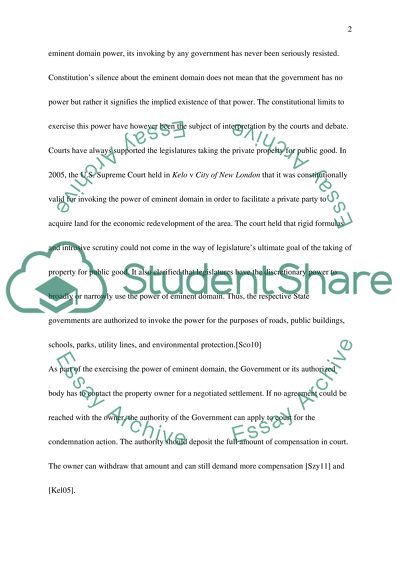Cite this document
(“Constitutional Law: Eminent Domain Essay Example | Topics and Well Written Essays - 1250 words”, n.d.)
Constitutional Law: Eminent Domain Essay Example | Topics and Well Written Essays - 1250 words. Retrieved from https://studentshare.org/law/1437235-constitutional-law-eminent-domain
Constitutional Law: Eminent Domain Essay Example | Topics and Well Written Essays - 1250 words. Retrieved from https://studentshare.org/law/1437235-constitutional-law-eminent-domain
(Constitutional Law: Eminent Domain Essay Example | Topics and Well Written Essays - 1250 Words)
Constitutional Law: Eminent Domain Essay Example | Topics and Well Written Essays - 1250 Words. https://studentshare.org/law/1437235-constitutional-law-eminent-domain.
Constitutional Law: Eminent Domain Essay Example | Topics and Well Written Essays - 1250 Words. https://studentshare.org/law/1437235-constitutional-law-eminent-domain.
“Constitutional Law: Eminent Domain Essay Example | Topics and Well Written Essays - 1250 Words”, n.d. https://studentshare.org/law/1437235-constitutional-law-eminent-domain.


